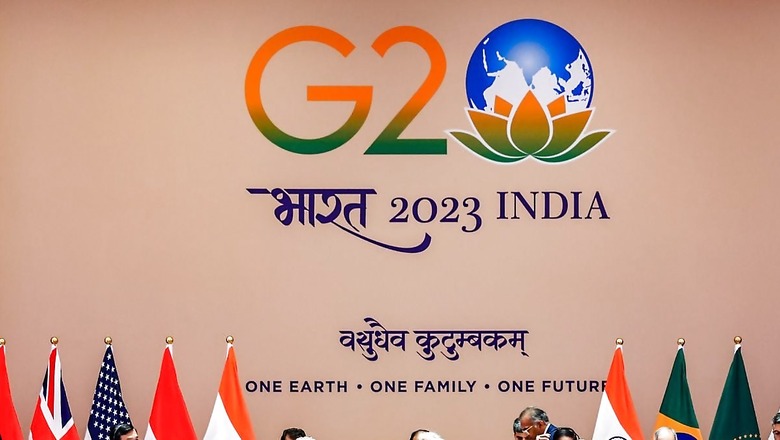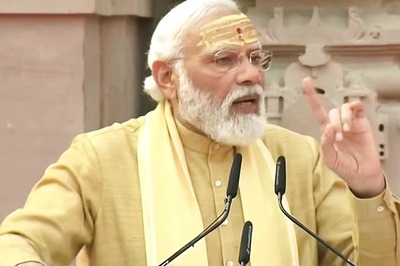
views
The power group of 20 nations responsible for 80% of the world’s emissions agreed to pursue and encourage efforts to triple renewable energy capacity globally through existing targets and policies. The ambitious clean energy push made it to the G20 New Delhi Leaders’ Declaration which was unanimously adopted on Saturday amid much applause.
Experts hailed it as a significant step forward by the G20 if it can be matched with technology and finance. It also increases the odds that a global goal to triple renewables can be agreed upon at the COP28 in December.
“A tripling of global renewable capacity by 2030 is the biggest single action that would keep 1.5℃ within reach,” remarked Aditya Lolla, Asia Programme Leader, Ember. “Most importantly, it creates a necessity for countries to go back and reassess their own plans to make sure they are consistent with the goal.”
Madhura Joshi, India Lead, E3G, a climate think tank, called it a landmark decision, which is important for both development and climate goals. “But increasing renewables must be backed by phasing down fossil fuels – both are indispensable for just transitions and a net-zero world,” she added.
However, there was no specific progress on phasing down fossil fuels. G20, which is home to 93% of global operating coal power plants, maintained a status quo on the issue by reiterating language from the previous summit in Bali.
The G20 meet being held under the Indian presidency also reached an agreement to support doubling the rate of energy efficiency improvement by 2030. The Leaders Declaration also focussed extensively on reforming global financial institutions and debt structuring to make funds available for developing nations struggling to meet climate challenges.
With the world bearing the brunt of extreme weather events, climate action remained high on the agenda for G20, and ended with all member nations including the United States and European Union lending strong support for the 1.5℃ target of the Paris Agreement as well as just and equitable transition. The Indian presidency was lauded for getting the New Delhi Leaders’ Declaration finalised on Day One of the summit, despite all the geopolitical tensions.
There was no further commitment to increasing the availability of finance to developing countries beyond $100 billion. However, for the first time in a G20 summit, the countries managed to put a number to the need for climate finance and moved the language from billions to trillions. The Declaration noted the need for $5.8-5.9 trillion in the pre-2030 period for developing countries to achieve their Nationally Determined Contributions (NDCs) and $4 trillion per year for clean energy technologies by 2030 to reach net zero emissions by 2050.
However, experts say the agreement is on facilitating and not committing to it.
“While the progress is good, a time commitment on both the renewable energy target and allocation of finance to energy and developing countries would have strengthened the commitment from nations on the issue of climate crisis,” said Vibhuti Garg, Director, South Asia, Institute for Energy Economics and Financial Analysis, (IEEFA).
Experts highlighted that the net zero target needs much higher investment and if that commitment is not enhanced, it will be difficult for countries in the Global South to achieve their climate goals.
The Declaration also recognised the importance of sustainable biofuels in zero and low-emission development strategies. A Global Biofuels Alliance was launched by Prime Minister Narendra Modi, who termed it a watershed moment in India’s quest towards sustainability and clean energy.
Dr Ajay Mathur, Director General, International Solar Alliance (ISA), said the Indian presidency has led as the voice of the Global South, gathering inputs and ideas that will lead to solutions that are more easily deployable.



















Comments
0 comment